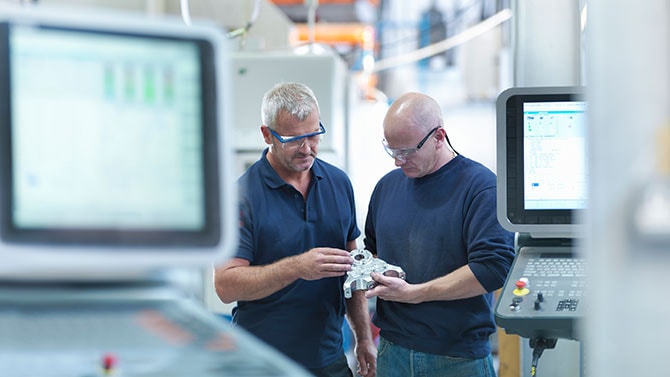
Industrial manufacturing and automotive
FOT: Getting transformation over the line
Automotive and manufacturing companies are having limited success with transforming their front office. What can companies in the sector do to turn their fortunes around? Digital innovation is changing customers’ expectations of automotive companies and manufacturers. This isn’t limited to the B2C world, as people get used to better customer experience in their personal lives, they want this replicated at work too, and are demanding consumer-like experiences across business platforms. And their new demands are not limited to product: in this era of mass personalisation and real-time production, it is the customer experience that is a key competitive differentiator across B2B and B2C.

What is Front Office Transformation? A major project to transform the business processes and technologies used to identify, engage, sell to, service, and retain customers – across sales, marketing, service, and support.

A notable difference in FOT
However, our new research suggests that the sector’s transformation projects are not always living up to expectations. Just over half (51%) of automotive and manufacturing businesses describe their most recent FOT project as ‘successful’, which is broadly in line with the 52% average recorded across all the industries we surveyed. There is, however, a notable difference between manufacturing and automotive companies: 55% of the former say their FOT was successful, compared with just 45% of automotive companies. We have identified three areas where improvement will lead to more successful transformation of the front office.
Build a strong cultural foundation for FOT
Almost every business in the automotive and manufacturing sector (99%) says that transforming the front office has proved to be a major cultural challenge for employees. One reason for this could be clarity of purpose and communication: just 16% of companies in the sector say they were very clear about the culture they were trying to build through their FOT programme. As a result, they have found it difficult to get employees involved in the process. More than half (56%) say that staff were initially reluctant to get on board, although they did later become advocates for change; just 7% say that employees were ‘very keen’ to get involved in FOT. It is difficult to overstate the importance of building the right culture, which is a key success factor in FOT across the board. In fact, 63% of all companies that strongly believe their FOT put people ahead of technology say that their FOT was a success, compared with 52% overall.


Engage and enable employees in FOT
A crucial first step in building the right culture for transformation is to ensure that employees are both enabled and engaged. But our research shows that many businesses in manufacturing and automotive have depended heavily on employees taking the initiative for engaging with projects to transform the front office. More than six in 10 automotive and manufacturing organisations (62%) have offered their staff experience-based learning, for example, and 46% have appointed enablement champions to support their colleagues in getting to grips with FOT. But there is scope to do more. For example, just 6% of companies in the sector have tried gamification. It is important that automotive and manufacturing companies get creative here. Our research shows that 70% of companies experiencing FOT success had used experience based learning, while only 47% of only partially successful companies had tried this.
Bolster budgets – and involve the top team
Budget is part of the explanation for why the transformation efforts of some automotive and manufacturing organisations have fallen short. While two-thirds of companies in the sector (66%) say that getting FOT budgets signed off was relatively straightforward, half of all automotive companies and manufacturers (49%) describe the budget awarded to their FOT project as ‘not adequate’. FOT teams might therefore need to be more realistic about the cost of such initiatives in future. However, additional funding will not on its own guarantee more successful transformation; it is also important to ensure that the leadership team is involved. FOT is a powerful way to address these challenges, but the process itself is not easy, and manufacturing and automotive companies are seeing mixed results. To turn it around, they must first establish a culture that allows employees to learn and flourish, and then ensure that budgets are properly set by a senior team that is fully on board.

Contact us
















